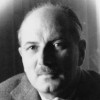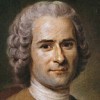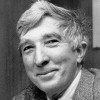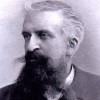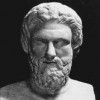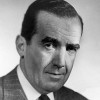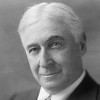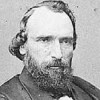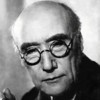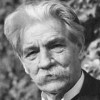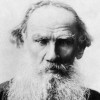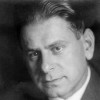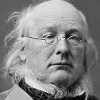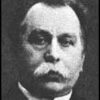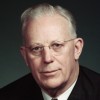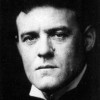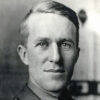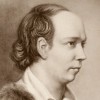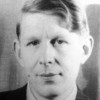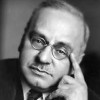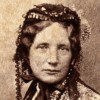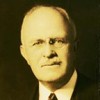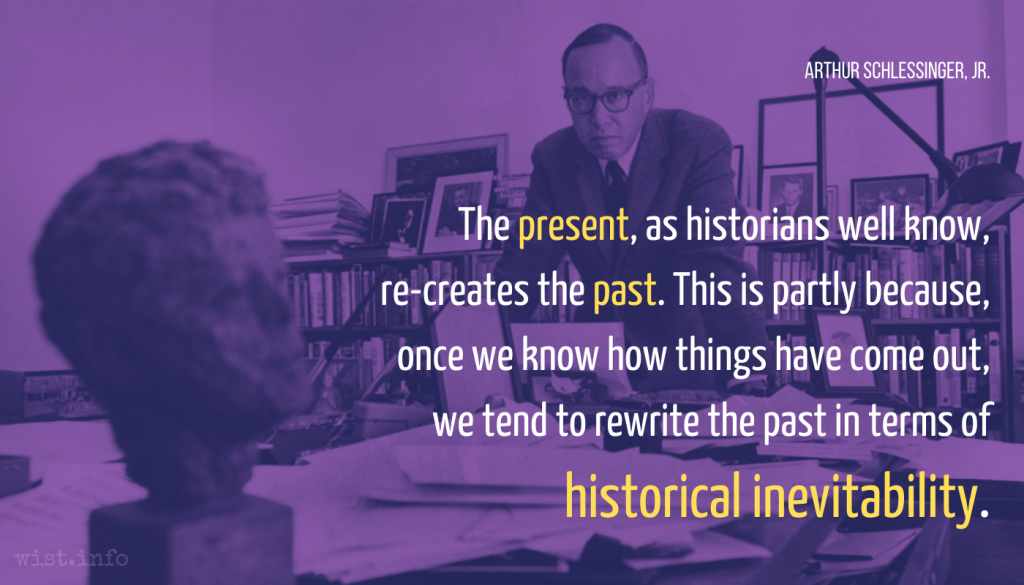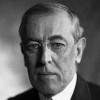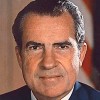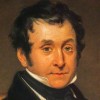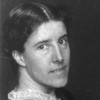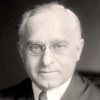The things we admire in men, kindness and generosity, openness, honesty, understanding and feeling, are the concomitants of failure in our system. And those traits we detest, sharpness, greed, acquisitiveness, meanness, egotism and self-interest, are the traits of success. And while men admire the quality of the first they love the produce of the second.
We are happy in this world just in proporshun as we make others happy.
[We are happy in this world just in proportion as we make others happy.]
My dear fellow citizens,
For forty years you heard from my predecessors on this day different variations on the same theme: how our country was flourishing, how many million tons of steel we produced, how happy we all were, how we trusted our government, and what bright perspectives were unfolding in front of us.
I assume you did not propose me for this office so that I, too, would lie to you.
If it be of the highest importance to man, as an individual, that his religion should be true, the case of society is not the same. Society has no future life to hope for or to fear; and provided the citizens profess a religion, the peculiar tenets of that religion are of very little importance to its interests.
Alexis de Tocqueville (1805-1859) French writer, diplomat, politician
Democracy in America, Vol. 1, ch. 17 (1835)
Alt. trans.: "Though it is very important for man as an individual that his religion should be true, that is not the case for society. Society has nothing to fear or hope from another life; what is most important for it is not that all citizens profess the true religion but that they should profess religion."
Be very careful never to show your own bias to anyone who is giving you information, or passing it on to you. Once he sees that you have a particular inclination he will instinctively tend to tell you what he thinks will suit you, and enhance your opinion of him.
When you have reached your own room, be kind to those who have chosen different doors and to those who are still in the hall. If they are wrong they need your prayers all the more; and if they are your enemies, then you are under orders to pray for them.
The day may dawn when fair play, love for one’s fellow men, respect for justice and freedom, will enable tormented generations to march forth triumphant from the hideous epoch in which we have to dwell. Meanwhile, never flinch, never weary, never despair.
Would yee both eat your cake, and have your cake?
John Heywood (1497?-1580?) English playwright and epigrammist
Proverbes, Part 2, ch. 9 (1546)
(Source)
Do not meddle in the affairs of wizards, for they are subtle and quick to anger.
J.R.R. Tolkien (1892-1973) English writer, fabulist, philologist, academic [John Ronald Reuel Tolkien]
The Lord of the Rings, Vol. 1: The Fellowship of the Ring, Book 1, ch. 3 “Three Is Company” [Gildor, to Frodo] (1954)
(Source)
The moment of truth, the sudden emergence of a new insight, is an act of intuition. Such intuitions give the appearance of miraculous flashes, or short-circuits of reasoning. In fact they may be likened to an immersed chain, of which only the beginning and ends are visible above the surface of consciousness. The diver vanishes at one end of the chain and comes up at the other end, guided by invisible links.
The masses have never thirsted after truth. They turn aside from evidence that is not to their taste, preferring to deify error, if error seduce them. Whoever can supply them with illusions is easily their master; whoever attempts to destroy their illusions is always their victim.
I concur with you strictly in your opinion of the comparative merits of atheism and demonism, and really see nothing but the latter in the being worshipped by many who think themselves Christians.
Thomas Jefferson (1743-1826) American political philosopher, polymath, statesman, US President (1801-09)
Letter to Richard Price (8 Jan 1789)
(Source)
Price had written to Jefferson on 26 Oct 1788 about the harm done by religion and wrote "Would not Society be better without Such religions? Is Atheism less pernicious than Demonism?"
Character assassination is at once easier and surer than physical assault; and it involves far less risk for the assassin. It leaves him free to commit the same deed over and over again, and may, indeed, win him the honors of a hero in the country of his victims.
LEADER OF THE CHORUS: Weak mortals, chained to the earth, creatures of clay as frail as the foliage of the woods, you unfortunate race, whose life is but darkness, as unreal as a shadow, the illusion of a dream.
Aristophanes (c. 450-c. 388 BC) Athenian comedic playwright
The Birds, ll. 685-687 (414 BC) [tr. O’Neill (1938)]Full text.
Alt. trans.: Frere (1839) (text): "CHORUS (LEADER): Ye Children of Man! whose life is a span, / Protracted with sorrow from day to day, / Naked and featherless, feeble and querulous, / Sickly, calamitous creatures of clay!"
Alt. trans.: Hickie (1853) (text): "CHORUS (LEADER): Come now, ye men, in nature darkling, like to the race of leaves, of little might, figures of clay, shadowy feeble tribes, wingless creatures of a day, miserable mortals, dream-like men."
When the natural Weakness and Imperfection of Human Understanding is considered, with the unavoidable Influences of Education, Custom, Books and Company, upon our Ways of thinking, I imagine a Man must have a good deal of Vanity who believes, and a good deal of Boldness who affirms, that all the Doctrines he holds, are true; and all he rejects, are false. And perhaps the same may be justly said of every Sect, Church and Society of men when they assume to themselves that Infallibility which they deny to the Popes and Councils.
Benjamin Franklin (1706-1790) American statesman, scientist, philosopher, aphorist
Letter to Abiah Franklin (father) (13 Apr 1738)
Full text.
An appeaser is one who feeds a crocodile, hoping it will eat him last.
Winston Churchill (1874-1965) British statesman and author
(Attributed)
Churchill reportedly used used this phrase frequently prior to WWII, but it has not been found per se by Churchill scholars in his writings, speeches, press conferences, radio addresses, or parliamentary debates.
However, on a radio broadcast (20 Jan 1940), speaking of the neutral states standing by while Germany (and Russia) swallowed them up (referencing Finland fighting against Russia in particular), "Each one hopes that if he feeds the crocodile enough, the crocodile will eat him last. All of them hope that the storm will pass before their turn comes to be devoured. But I fear -- I fear greatly -- the storm will not pass. It will rage and it will roar, even more loudly, even more widely."
Also attributed to Franklin Roosevelt.
More discussion of this quotation: An Appeaser Is One Who Feeds a Crocodile, Hoping It Will Eat Him Last – Quote Investigator.
I have an old-fashioned belief that Americans like to make up their own minds on the basis of all available information. The conclusions you draw are your own affair. I have no desire to influence them, and shall leave such efforts to those who have more confidence in their own judgment than I have in mine.
Those who matter don’t mind, and those who mind don’t matter.
Bernard Baruch (1870-1965) American businessman and statesman
(Attributed)
When asked by Igor Cassini, society columnist for the New York Journal American, how he handled the seating arrangements at all his dinner parties, Baruch responded, "I never bother about that. Those who matter don't mind, and those who mind don't matter."Quoted in Bennett Cerf, Shake Well Before Using: A New Collection of Impressions and Anecdotes Mostly Humorous (1948).
The more ignorant men are, the more convinced are they that their little parish and their little chapel is an apex to which civilization and philosophy has painfully struggled up the pyramid of time from a desert of savagery.
Some people have no original ideas because they do not think well enough of themselves to consider their ideas worth noticing and developing.
It’s not the load that breaks you down, it’s the way you carry it.
Lena Horne (1917-2010) American singer, actress, dancer, activist
(Attributed)
The bill for establishing religious freedom, the principles of which had, to a certain degree, been enacted before, I had drawn in all the latitude of reason and right. It still met with opposition; but, with some mutilations in the preamble, it was finally passed; and a singular proposition proved that its protection of opinion was meant to be universal.
Where the preamble declares, that coercion is a departure from the plan of the holy author of our religion, an amendment was proposed by inserting “Jesus Christ,” so that it would read “A departure from the plan of Jesus Christ, the holy author of our religion;” the insertion was rejected by the great majority, in proof that they meant to comprehend, within the mantle of its protection, the Jew and the Gentile, the Christian and Mohammedan, the Hindoo, and Infidel of every denomination.
Thought that is silenced is always rebellious. Majorities, of course, are often mistaken. This is why the silencing of minorities is necessarily dangerous. Criticism and dissent are the indispensable antidote to major delusions.
DICAEPOLIS: Comedy too can sometimes discern what is right. I shall not please, but I shall say what is true.
Aristophanes (c. 450-c. 388 BC) Athenian comedic playwright
Acharnians, li. 500-501 (425 BC) [tr. Athen. (1912)]
Full text.
The neer to the church, the further from God.
John Heywood (1497?-1580?) English playwright and epigrammist
Proverbes, Part 1, ch. 9 (1546)
(Source)
To the question whether I am a pessimist or an optimist, I answer that my knowledge is pessimistic, but my willing and hoping are optimistic.
Albert Schweitzer (1875-1965) Alsatian philosopher, physician, philanthropist, polymath
Out of My Life and Thought, An Autobiography, Epilogue (1933) [tr. Campion]
See also Gramsci.
When [ignorance] does not know something, it says that what it does not know is stupid.
Leo Tolstoy (1828-1910) Russian novelist and moral philosopher
A Confession, ch. 7 (1882) [tr. Maude (1921)]
Full text.
‘What a pity that Bilbo did not stab that vile creature, when he had a chance!’
‘Pity? It was Pity that stayed his hand. Pity, and Mercy: not to strike without need. And he has been well rewarded, Frodo. Be sure that he took so little hurt from the evil, and escaped in the end, because he began his ownership of the Ring so. With Pity.’
J.R.R. Tolkien (1892-1973) English writer, fabulist, philologist, academic [John Ronald Reuel Tolkien]
The Lord of the Rings, Vol. 1: The Fellowship of the Ring, Book 1, ch. 2 “The Shadow of the Past” [Bilbo and Gandalf] (1954)
(Source)
The important thing in life is not the victory but the contest; the essential thing is not to have won but to have fought well.
[L’important dans la vie ce n’est point le triomphe, mais le combat, l’essentiel ce n’est pas d’avoir vaincu mais de s’être bien battu.]
Pierre Frédy, Baron de Coubertin (1863-1937) French pedagogue, historian, founder of the International Olympic Committee
Olympic Creed, Speech, Olympic Games, London (24 Jul 1908)
Alt. trans: "The important thing in life is not the triumph but the struggle, the essential thing is not to have conquered but to have fought well."
Original phrasing by de Coubertin: "The importance of these Olympiads is not so much to win as to take part."
De Coubertin was drawing from a sermon by Bp. Ethelbert Talbot at St Paul's Cathedral, London (19 Jul 1908): "We have just been contemplating the great Olympic Games. What does it mean? It means that young men of robust physical life have come from all parts of the world. It does mean, I think, as someone has said, that this era of internationalism as seen in the Stadium has an element of danger. Of course, it is very true, as he says, that each athlete strives not only for the sake of sport, but for the sake of his country. Thus a new rivalry is invented. If England be beaten on the river, or America outdistanced on the racing path, or that American has lost the strength which she once possessed. Well, what of it? The only safety after all lies in the lesson of the real Olympia -- that the Games themselves are better than the race and the prize. St. Paul tells us how insignificant is the prize, Our prize is not corruptible, but incorruptible, and though only one may wear the laurel wreath, all may share the equal joy of the contest. All encouragement, therefore, be given to the exhilarating -- I might also say soul-saving -- interest that comes in active and fair and clean athletic sports."
The development from a religion of fear to moral religion is a great step in peoples’ lives. And yet, that primitive religions are based entirely on fear and the religions of civilized peoples purely on morality is a prejudice against which we must be on our guard. The truth is that all religions are a varying blend of both types, with this differentiation: that on the higher levels of social life the religion of morality predominates.
Albert Einstein (1879-1955) German-American physicist
“Religion and Science,” New York Times Magazine (9 Nov 1930)
(Source)
We probably differ on that which relates to the dogmas of theology, the foundation of all sectarianism, and on which no two sects dream alike; for if they did they would then be of the same. you say you are a Calvinist. I am not. I am of a sect by myself, as far as I know.
Thomas Jefferson (1743-1826) American political philosopher, polymath, statesman, US President (1801-09)
Letter (1819-06-25) to Ezra Stiles Ely
(Source)
What we need and what we want is to moralize politics, and not to politicize morals.
Sir Karl Popper (1902-1994) Austrian-British philosopher
The Open Society and Its Enemies, ch. 6 (1945)
Full text.
For the trouble with lying and deceiving is that their efficiency depends entirely upon a clear notion of the truth that the liar and deceiver wishes to hide. In this sense, truth, even if it does not prevail in public, possesses an ineradicable primacy over all falsehoods.
Hannah Arendt (1906-1975) German-American philosopher, political theorist
“Lying in Politics,” Crises of the Republic (1969)
(Source)
I’m a pessimist because of intelligence, but an optimist because of will.
Antonio Gramsci (1891-1937) Italian writer, politician, Marxist political theorist
Letter from Prison (19 Dec 1929)
Also attributed to Romain Rolland.
The only lost cause is one we give up on before we enter the struggle.
Václav Havel (1936-2011) Czech playwright, essayist, dissident, politician
(Attributed)
Quoted in Amnesty International, "From Prisoner to President – A Tribute" (Oct 2003).
The illusion that times that were are better than those that are, has probably pervaded all ages.
Horace Greeley (1881-1872) American newspaper editor, reformer, politician
The American Conflict: a history of the great rebellion in the United States, ch. 1 “Our Country After the Revolution” (1864)
Full text.
Every method is used to prove to men that in given political, economic, and social situations they are bound to be happy and those who are unhappy are mad or criminals or monsters.
Alberto Moravia (1907-1990) Italian novelist [b. Alberto Pincherle]
“Man As an End” (1964) [tr. Wall (1965)]
All men who read escape from something else into what lies behind the printed page; the quality of the dream may be argued, but its release has become a functional necessity. All men must escape at times from the deadly rhythm of their private thoughts. … I hold no particular brief for the detective story as the ideal escape. I merely say that all reading for pleasure is escape, whether it be Greek, mathematics, astronomy, Benedetto Croce, or The Diary of the Forgotten Man. To say otherwise is to be an intellectual snob, and a juvenile at the art of living.
Love me, love my dog.
John Heywood (1497?-1580?) English playwright and epigrammist
Proverbes, Part 2, ch. 9 (1546)
(Source)
Earlier noted as a common proverb by Bernard of Clairvaux in the 11th Century: "Qui me amat, amet et canem meum [Who loves me will love my dog also] in his First Sermon on the Feast of St Michael.
Ignorance is not a simple lack of knowledge but an active aversion to knowledge, the refusal to know, issuing from cowardice, pride or laziness of mind.
Three Rings for the Elven-kings under the sky,
Seven for the Dwarf-lords in their halls of stone,
Nine for Mortal Men doomed to die,
One for the Dark Lord on his dark throne
In the Land of Mordor where the Shadows lie.
One Ring to rule them all, One Ring to find them,
One Ring to bring them all and in the darkness bind them
In the Land of Mordor where the Shadows lie.J.R.R. Tolkien (1892-1973) English writer, fabulist, philologist, academic [John Ronald Reuel Tolkien]
The Lord of the Rings, Vol. 1: The Fellowship of the Ring, Book 1, ch. 2 “The Shadow of the Past” (1954)
(Source)
Gandalf recites this verse "long known in Elven-lore," after finding lines 6-7 engraved in Quenya (but representing the Black Speech) on the ring Frodo has.
We are ready to die for an opinion but not for a fact: indeed, it is by our readiness to die that we try to prove the factualness of our opinion.
The twentieth century looms before us big with the fate of many nations. If we stand idly by, if we seek merely swollen, slothful ease and ignoble peace, if we shrink from the hard contests where men must win at hazard of their lives and at the risk of all they hold dear, then the bolder and stronger peoples will pass us by, and will win for themselves the domination of the world.
Theodore Roosevelt (1858-1919) American politician, statesman, conservationist, writer, US President (1901-1909)
“The Strenuous Life,” speech, Hamilton Club, Chicago (10 Apr 1899)
Full text.
Happy the Man, and happy he alone,
He who can call today his own:
He who, secure within, can say,
Tomorrow do thy worst, for I have lived today.
Be fair or foul or rain or shine
The joys I have possessed, in spite of fate, are mine.
Not Heav’n it self upon the past has pow’r,
But what has been, has been, and I have had my hour.
[Ille potens sui
laetusque deget cui licet in diem
dixisse “Vixi: cras vel atra
nube polum pater occupato
vel sole puro; non tamen inritum
quodcumque retro est efficiet neque
diffinget infectumque reddet
quod fugiens semel hora vexit.”]Horace (65-8 BC) Roman poet and satirist [Quintus Horacius Flaccus]
Odes [Carmina], Book 3, # 29, l. 41ff (3.29.41-48) (23 BC) [tr. Dryden (1685)]
(Source)
"To Maecenas." (Source (Latin)). Alternate translations:He's Master of himself alone,
He lives, that makes each day his own:
He lives that can distinctly say
It is enough, for I have liv'd to day:
Let Jove to morrow smiling rise,
Or let dark Clouds spread o're the Skys:
He cannot make the pleasures void
Nor sower the sweets I have enjoy'd,
Nor call that back which winged hours have born away.
[tr. Creech (1684)]Happy he,
Self-centred, who each night can say,
“My life is lived: the morn may see
A clouded or a sunny day:
That rests with Jove: but what is gone,
He will not, cannot turn to nought;
Nor cancel, as a thing undone,
What once the flying hour has brought.
[tr. Conington (1872)]That man is master of himself and shall live happy, who has it in his power to say, "I have lived to-day: to-morrow let the Sire invest the heaven, either with a black cloud, or with clear sunshine; nevertheless he shall not render ineffectual what is past, nor undo or annihilate what the fleeting hour has once carried off.
[tr. Smart/Buckley (1853)]Lord of himself that man will be,
And happy in his life alway.
Who still at eve can say with free
Contented soul, "I've lived to-day!
Let Jove to-morrow, if he will,
With blackest clouds the welkin fill,
Or flood it all with sunlight pure.
Yet from the past he cannot take
Its influence, for that is sure.
Nor can he mar, or bootless make
Whate'er of rapture and delight
The hours have borne us in their flight."
[tr. Martin (1864)]Happy indeed is he,
Lord of himself, to whom
’Tis given to say, as each day ends, “I have lived:”
To-morrow let the Sire invest the heaven
With darkest cloud or “purest ray serene,”
He mars not what has been,
Nor from Time's sum blots out one fleeted hour.
[tr. Bulwer-Lytton (1870)]That man will live in happiness and self-command who can say at the close of each day, "I have lived. To-morrow let the Great Father fill the sky with black cloud or bright sunshine, yet can he not make void that which is to come, nor cause that not to have been which the flying hour hath once carried away on its wings."
[tr. Elgood (1893)]Self-ruled, light-hearted shall he be,
Who daily 'I have lived,' can say,
Dark tempests let the Sire decree,
Or brightness, for the coming day.
Yet cannot he the bygone days
Unmake, or hold the past undone,
Nor can with utmost might erase
The work of hours whose glass is run.
[tr. Gladstone (1894)]He will, his soul possessing, live joyfully,
Who, as each day goes by, can say, "I have liv'd;
To-morrow let th' Almighty Father
Either fill up with the darkling storm-cloud,
Or the pure sunlight! That which is past, e'en He
Cannot undo and cause to have never been,
Nor can He by his pow'r demolish
Bliss that the past fleeting hour has given."
[tr. Phelps (1897)]That man will be
Master of self, and pass in joy, who daily may
Declare "I have lived*: to-morrow let the Father
Encompass heaven, or with black cloud,
Or sunshine clear: still that which is behind
He will not render void nor forge anew
Nor make as though undone,
Whate'er the flying hour has once removed.
[tr. Garnsey (1907)]Self-centred he,
And blest, who can make boast each coming night
"This day I've lived." Or dark or bright
To-morrow's dawn may be,
As Jove shall please. But never deed that's done
Can ev'n high Heaven make as 'twere thing of naught;
Or act, by Time to issue brought,
Cancel as though 'twere none.
[tr. Marshall (1908)]Master of himself and joyful will that man live who day by day can say: "I have lived to-day ; to-morrow let the Father fill the heaven with murky clouds, or radiant sunshine! Yet will he not render vain whatever now is past, nor will he alter and undo what once the fleeting hour has brought.
[tr. Bennett (Loeb) (1912)]Lord of himself, and happy, will
He be, who can from day to day
Say, "I have lived; let Jove fulfill
Tomorrow's sky with leaden-grey
Clouds or with shine, he can't undo
What has been done, nor make as naught,
No, nor reforge and shape anew,
What once the flying hour has brought.
[tr. Mills (1924)]Call him happy
And lord of his own soul who every evening
Can say, "Today I have lived.
Tomorrow Jove may blot the sky with cloud
Or fill it with pure sunshine, yet he cannot
Devalue what has once been held as precious,
Or tarnish nor melt back
The gold the visiting hour has left behind."
[tr. Michie (1963)]A man is his own
Master, is happy, Maecenas, saluting
The sun and saying “Today I’ve been
Alive.” The gods can let tomorrow’s
Sky glow or be black with clouds,
But tomorrow's tomorrow, I've got what I've got,
Nothing I've had in my hands will be nothing,
Though time takes it.
[tr. Raffel (1983)]Happy the man who has earned the right to say:
"I've lived my life. There may be storms tomorrow,
Maybe fair weather. Nobody knows for sure.
What I have had in the past cannot be taken
Away from me now."
[tr. Ferry (1997)]Master of himself and joyful
will that man live who is able
every day to say: "I have lived."
Tomorrow let the Father fill the sky
either with dark clouds or radiant sunshine.
But even he cannot undo that which is done
or render vain the past
or alter what the fleeting hour has once wrought.
[tr. Alexander (1999)]He’s happy, he’s his own master, who can say
each day: ‘I’ve lived: tomorrow, the Father may
fill the heavens with darkening cloud,
or fill the sky with radiant sunshine:
yet he can’t render whatever is past as
null and void, he can never seek to alter,
or return and undo, whatever
the fleeting moment tosses behind it.
[tr. Kline (2015)]
Indecision has rendered all my faculties barren.
Henri-Frédéric Amiel (1821-1881) Swiss philosopher, poet, critic
Journal (14 Oct 1872) [tr. Ward (1887)]
Full text.
What are all the records of history, but narratives of successive villainies, of treasons and usurpations, massacres and wars?
Samuel Johnson (1709-1784) English writer, lexicographer, critic
The Rambler, #175 (19 Nov 1751)
(Source)
The chief reason warfare is still with us is neither a secret death wish of the human species, nor an irrepressible instinct of aggression, nor, finally and more plausibly, the serious economic and social dangers inherent in disarmament, but the simple fact that no substitute for this final arbiter in international affairs has yet appeared on the political scene.
The most important thing a man can know is that, as he approaches his own door, someone on the other side is listening for the sound of his footsteps.
Clark Gable (1901-1960) American film actor [b. William Clark Goebel]
(Attributed)
In Ronald Reagan, Where's the Rest of Me?, ch. 18 (1965). Quoted as something Reagan wrote to his first son, Michael, before his marriage.Alternately given as, "There is no greater happiness for a man than approaching a door at the end of the day knowing someone on the other side of the door is waiting for the sound of his footsteps," in Julia Baumgold, "Ronald Reagan's Total Woman," New York Magazine, 28 Jul 1980.
At one time kings were anointed by Deity, so the problem was to see to it that Deity chose the right candidate. In this age the myth is “the will of the people” … but the problem changes only superficially.
Useful undertakings which require sustained attention and vigorous precision in order to succeed often end up by being abandoned, for, in America, as elsewhere, the people move forward by sudden impulses and short-lived efforts.
What this country needs is a short, victorious war to stem the tide of revolution.
Vyacheslav von Pléhve (1846-1904) Russian Tsarist security director, Interior Minister [Vyacheslav Konstantinovich von Plehve, or Pleve; Вячесла́в Константи́нович фон Пле́ве]
Comment (1903) [tr. Walder (1974)]
(Source)
Regarding the impending Russo-Japanese War (1904-05). Possibly apocryphal; the comment is quoted in the memoirs of Count Sergei Witte, an opponent of Plehve, several years later (and well after Plehve's 1904 assassination). Witte recounted it as a retort by Plehve to General Alexey Nikolayevich Kuropatkin, who accused Plehve of supporting the conflict for adventurist/expansionist reasons.
Russia, though considered much stronger than Japan militarily, ended up losing the war, destabilizing the government and ironically leading to revolutions in 1905 and 1917.
Alternate translations:
- "We need a little victorious war to stem the tide of revolution." [tr. Yarmolinsky (1921)]
- "We need a little, victorious war to stem the revolution." [tr. Harcave (1990)]
- "To contain the revolution, we need a short victorious war." [tr Hodson (2017)]
HENRY: A speaker is but a prater, a rhyme is but a ballad, a good leg will fall, a straight back will stoop, a black beard will turn white, a curled pate will grow bald, a fair face will wither, a full eye will wax hollow, but a good heart, Kate, is the sun and the moon, or rather the sun and not the moon, for it shines bright and never changes but keeps his course truly. If thou would have such a one, take me.
As for “literature of expression” and “literature of escape” — this is critics’ jargon, a use of abstract words as if they had absolute meanings. Everything written with vitality expresses that vitality: there are no dull subjects, only dull minds.
When the skie falth we shall have Larkes.
[When the sky falls, we shall have larks.]
John Heywood (1497?-1580?) English playwright and epigrammist
Proverbes, Part 1, ch. 4 (1546)
(Source)
Administrivia: Doing the Numbers: 3/2011
We last updated the numbers back in April 2010, but since I’m thinking about it, here’s where we are now.
I moved a few other things from “Miscellaneous” into authored categories, but the overall quotations made a very nice increase over the last year (if I’d waited until the end of April, I’d be a full thousand more quotes). I’ve also added a good number of new authors.
Speaking of authors, here’s the current Top 10 (expanded a bit, due to ties). The ones in italics have jumped into the list since last year.
There’s now a listing in the sidebar (“Prolific Authors”) to show this info dynamically.
The current Top Quotes (by views) are always shown in the sidebar, too (“Popular Quotables”). As a snapshot, and with author:
- ↑ Robert Frost: “The Lesson for Today,” A Witness Tree (1942) (888)
- ↑ Michel de Montaigne: “That to Philosophize Is to Learn to Die,” Essays (1588) [tr. D. Frame (1958)] (760)
- ↑ John Steinbeck: Nobel prize acceptance speech (10 Dec 1962) (728)
- ↓ Seneca the Younger: Moral Essays, “On Tranquility of Mind De Tranquillitate Animi“, 17.10 [tr. W. Langsdorf (1900)] (702)
- ♥ Bertrand Russell: “The Triumph of Stupidity” (10 May 1933) (667)
- ↓ Theodore Roosevelt: “The New Nationalism,” speech, Osawatomie, Kansas (31 Aug 1910) (655)
- ♥ Aeschylus: Agamemnon, l. 179 (597)
- ♥ Albert Einstein: “Science, Philosophy and Religion: a Symposium” (1941) (505)
- ↓ Nathaniel Hawthorne: The Scarlet Letter, “Introduction: The Custom-House” (1850) (463)
- ↓ Lord Chesterfield: Letter to his son (9 Oct 1746) (415)
I’ve noted where each quote has risen or fallen in the rankings, or is new in the Top 10 from last time (♥). Quotes that fell off were Robert Louis Stevenson (“Aes Triplex” (1878)), William Henley (“Invictus” (1875)), and Patrick Henry (Speech, Virginia Ratifying Convention (5 Jun 1788)).
As far as traffic goes, according to Google Analytics I averaged about 107 visits a day in the last month, which looks to be up from the previous period, averaging around a thousand page views a week. Not too shabby — hardly fortune and glory, but a nice validation for my hobby.
Who Rank Quotes
There is no belief, however grotesque and even villainous, that cannot be made a part of human nature if it is inculcated in childhood and not contradicted in the child’s hearing.
George Bernard Shaw (1856-1950) British playwright and critic
The Intelligent Woman’s Guide to Socialism, Capitalism, Sovietism and Fascism, ch. 18 (1928)
See Schopenhauer.
There is more in you of good than you know, child of the kindly West. Some courage and some wisdom, blended in measure. If more of us valued food and cheer and song above hoarded gold, it would be a merrier world.
J.R.R. Tolkien (1892-1973) English writer, fabulist, philologist, academic [John Ronald Reuel Tolkien]
The Hobbit, ch. 18 “The Return Journey” [Thorin] (1937)
(Source)
Our doubts about ourselves cannot be banished except by working at that which is the one and only thing we know we ought to do. Other people’s assertions cannot silence the howling dirge within us. It is our talents rusting unused within us that secrete the poison of self-doubt into our bloodstream.
We must accept finite disappointment, but we must never lose infinite hope. Only in this way shall we live without the fatigue of bitterness and the drain of resentment.
Martin Luther King, Jr. (1929-1968) American clergyman, civil rights leader, social activist, preacher
Strength to Love, ch. 10 “Shattered Dreams,” sec. 2 (1963)
(Source)
Ignorance is preferable to error, and he is less remote from the truth who believes nothing than he who believes what is wrong.
Thomas Jefferson (1743-1826) American political philosopher, polymath, statesman, US President (1801-09)
Notes on the State of Virginia, Query 6 (1782)
(Source)
Administrivia: We are experiencing hemispherical difficulties … please stand by …
I realized yesterday that WIST has been “dark” for a week and a half. My apologies — I’ve been on business in Australia and South America, which has been both fascinating and exhausting and otherwise disorienting enough to have broken my daily WIST-posting habit.
We will resume our normal quotational broadcasts on Monday.
My wife should be as much free from suspicion of a crime as she is from a crime itself.
[Meos tam suspicione quam crimine iudico carere oportere.]
Julius Caesar (100-44 BC) Roman general and statesman [Gaius Julius Caesar]
In Suetonius, Life of Caesar
Popularly, "Caesar’s wife must be above reproach" or "beyond reproach."
Caesar was called to be a witness against Clodius, who was charge with having defiled sacred rites and having an affair with Pompeia, Caesar's wife. Caesar said he had investigated and found out nothing to prove the Pompeia's fidelity. When asked why, then, he had divorced her, he gave this answer.
Alt. trans.: "I judge it necessary for my kin to be as free from suspicion as from the charge of wrongdoing."
Alt. trans.: "I wished my wife to be not so much as suspected." [in Plutarch, “Caesar,” Parallel Lives [tr. Dryden (1693)]].
Another belief of mine: that everyone else my age is an adult, whereas I am merely in disguise.
Margaret Atwood (b. 1939) Canadian writer, literary critic, environmental activist
Cat’s Eye, Part 2 (1988)
(Source)
They rejoiced competing with all Hellenes, since oblivion belongs to those who do not take part.
Pindar (c. 522–443 BC) Greek lyric poet
Fourth Isthmian Ode (479 BC)
I like too many things and get all confused and hung-up running from one falling star to another till I drop. This is the night, what it does to you. I had nothing to offer anybody except my own confusion.
Jack Kerouac (1922–1969) Canadian-American novelist and poet
On the Road, Part 2, ch. 4 (1957)
(Source)
“Never laugh at live dragons, Bilbo you fool!” he said to himself, and it became a favorite saying of his later, and passed into a proverb.
J.R.R. Tolkien (1892-1973) English writer, fabulist, philologist, academic [John Ronald Reuel Tolkien]
The Hobbit, ch. 12 “Inside Information” (1937)
(Source)
A multitude of words is probably the most formidable means of blurring and obscuring thought. There is no thought, however momentous, that cannot be expressed lucidly in 200 words.
Remove justice, and what are kingdoms but gangs of criminals on a large scale?
[Remota itaque iustitia quid sunt regna nisi magna latrocinia?]Augustine of Hippo (354-430) Christian church father, philosopher, saint [b. Aurelius Augustinus]
City of God [De Civitate Dei], Book 4, ch. 4 (4.4) (AD 412-416) [tr. Bettenson (1972)]
(Source)
(Source (Latin)). Alternate translations:Set justice aside, then, and what are kingdoms but fair thievish purchases?
[tr. Healey (1610)]Justice being taken away, then, what are kingdoms but great robberies?
[tr. Dods (1871)]In the absence of justice, what is sovereignty but organized brigandage?
[tr. Zema/Walsh (1950)]And so if justice is left out, what are kingdoms except great robber bands?
[tr. Green (Loeb) (1963)]Justice removed, then, what are kingdoms but great bands of robbers?
[tr. Dyson (1998)]Remove justice, then, and what are kingdoms but large gangs of robbers?
[tr. Babcock (2012)]In the absence of justice, what is sovereignty but organized robbery?
[E.g.]
We rarely find anyone who can say he has lived a happy life, and who, content with his life, can retire from the world like a satisfied guest.
[Inde fit ut raro, qui se vixisse beatum
dicat et exacto contentus tempore vita
cedat uti conviva satur, reperire queamus.]
Ridicule is the only weapon which can be used against unintelligible propositions. Ideas must be distinct before reason can act upon them; and no man ever had a distinct idea of the Trinity. It is the mere Abracadabra of the mountebanks calling themselves the priests of Jesus.
Thomas Jefferson (1743-1826) American political philosopher, polymath, statesman, US President (1801-09)
Letter (1816-07-30) to Francis Adrian Van der Kemp
(Source)
The belief in the possibility of a short decisive war appears to be one of the most ancient and dangerous of human illusions.
Robert Wilson Lynd (1879-1949) British writer, literary essayist, journalist, and Irish nationalist
(Attributed)
History is invaluable in increasing our knowledge of human nature because it shows how people may be expected to behave in new situations. Many prominent men and women are completely ordinary in character and only exceptional in their circumstances.
If one really wishes to know how justice is administered in a country, one does not question the policemen, the lawyers, the judges, or the protected members of the middle class. One goes to the unprotected — those, precisely, who need the law’s protection most! — and listens to their testimony.
Sex is hardly ever just about sex.
Shirley MacLaine (b. 1934) American actress, dancer, activist, author
(Attributed)
I told you that “juvenile delinquent” is a contradiction in terms. “Delinquent” means “failing in duty.” But duty is an adult virtue — indeed a juvenile becomes an adult when, and only when, he acquires a knowledge of duty and embraces it as dearer than the self-love he was born with. There never was, there cannot be a “juvenile delinquent.” But for every juvenile criminal there are always one or more adult delinquents — people of mature years who either do not know their duty, or who, knowing it, fail.
I know of no country, indeed, where the love of money has taken stronger hold on the affections of men, and where the profounder contempt is expressed for the theory of the permanent equality of property.
Everyone … has a feeling of inferiority. But the feeling of inferiority is not a disease; it is rather a stimulant to health, normal striving and development. It becomes a pathological condition only when the sense of inadequacy overwhelms the individual and, far from stimulating him to useful activity, makes him depressed and incapable of development.
The private detective of fiction is a fantastic creation who acts and speaks like a real man. He can be completely realistic in every sense but one, that one sense being that in life as we know it such a man would not be a private detective.
There is no absurdity, however palpable, which cannot be firmly implanted in the minds of all, if only one begins to inculcate it before the early age of six by constantly repeating it to them with an air of great solemnity.
[Es giebt keine Absurdität , die so handgreiflich wäre , daß man sie nicht allen Menden fest in den Kopf regen könnte, wenn man nur schon vor ihrem sechsten Jahre anfienge, sie ihnen einzuprägen, indem manunabläffig und mit feierlichstem Ernst sie ihnen vorsagte.]
Arthur Schopenhauer (1788-1860) German philosopher
Parerga and Paralipomena, Vol. 2, ch. 26 “Psychological Observations [Psychologische Bemerkungen],” § 344 (1851) [tr. Payne (1974)]
(Source)
(Source (German)). Alternate translations:There is no absurdity so palpable but that it may be firmly planted in the human head if you only begin to inculcate it before the age of five, by constantly repeating it with an air of great solemnity.
[tr. Saunders (1851)]There is no absurdity, however palpable it may be, which may not be fixed in the minds of all men, if it is inculcated before they are six years old by continual and earnest repetition.
[tr. Dircks(1897)]
I come from under the hill, and under the hills and over the hills my paths led. And through the air. I am he that walks unseen. […] I am the clue-finder, the web-cutter, the stinging fly. I was chosen for the lucky number. […] I am he that buries his friends alive and drowns them and draws them alive again from the water. I came from the end of a bag, but no bag went over me. […] I am the friend of bears and the guest of eagles. I am Ring-winner and Luckwearer; and I am Barrel-rider.
J.R.R. Tolkien (1892-1973) English writer, fabulist, philologist, academic [John Ronald Reuel Tolkien]
The Hobbit, ch. 12 “Inside Information” [Bilbo] (1937)
(Source)
Bilbo's "riddling talk" epithets, given to Smaug in "the way to talk to dragons, if you don't want to reveal your proper name (which is wise), and don't want to infuriate them by a flat refusal (which is also very wise)."
In products of the human mind, simplicity marks the end of a process of refining, while complexity marks a primitive stage. Michelangelo’s definition of art as the purgation of superfluities suggests that the creative effort consists largely in the elimination of that which complicates and confuses a pattern.
The inherited churchly institutions in the United States are typically engaged in inducing people to join, support and attend church … in order to worship the church, not to glorify and enjoy God, and in order to enhance some churchly cult, not to esteem and enact the Gospel. The sanction for this appeal is a venerable one — the sale of indulgences. [People] are persuaded that by serving the church, by spending time and money and talent on the church, they can accomplish and exchange for merit and gain a justified status with God.
William Stringfellow (1928-1985) American lay theologian
Imposters of God: Inquiries into Favorite Idols
With a view to poetry, an impossible thing that is believable is preferable to an unbelievable thing that is possible.
[πρός τε γὰρ τὴν ποίησιν αἱρετώτερον πιθανὸν ἀδύνατον ἢ ἀπίθανον καὶ δυνατόν.]
Aristotle (384-322 BC) Greek philosopher
Poetics [Περὶ ποιητικῆς, De Poetica], ch. 24 / 1461b.11 (c. 335 BC) [tr. Sachs (2006)]
(Source)
Original Greek. Alternate translations:
- "The poet should prefer probable impossibilities to improbable possibilities." [tr. Butcher (1895)]
- "A likely impossibility is always preferable to an unconvincing possibility." [tr. Bywater (1909)]
- "You should prefer a plausible impossibility to an unconvincing possibility." [tr. Margoliouth (1911)]
- "For poetic effect a convincing impossibility is preferable to that which is unconvincing though possible." [tr. Fyfe (1932)]
- "Probable impossibilities are preferable to implausible possibilities." [tr. Halliwell (1986)]
- "In relation to the needs of the composition, a believable impossibility is preferable to an unbelievable possibility." [tr. Janko (1987)]
- "With respect to the requirement of art, the probable impossible is always preferable to the improbable possible."
- "For the purposes of poetry a convincing impossibility is preferable to an unconvincing possibility."
Let the one fight for his flag, and the other for his ideal, and let them both imagine that they are fighting for the country; the strife will be colossal.
[Que l’un combatte pour son drapeau, et que l’autre combatte pour son idéal, et qu’ils s’imaginent tous les deux combattre pour la patrie; la lutte sera colossale.]
No experiment can be more interesting than that we are now trying, and which we trust will end in establishing the fact, that man may be governed by reason and truth. Our first object should therefore be, to leave open to him all the avenues to truth. The most effectual hitherto found, is the freedom of the press. It is therefore, the first shut up by those who fear the investigation of their actions.
Thomas Jefferson (1743-1826) American political philosopher, polymath, statesman, US President (1801-09)
Letter to John Tyler (28 Jun 1804)
(Source)
If the Divine call does not make us better, it will make us very much worse. Of all bad men religious bad men are the worst. Of all created beings the wickedest is one who originally stood in the immediate presence of God.
C. S. Lewis (1898-1963) English writer, literary scholar, lay theologian [Clive Staples Lewis]
Reflections on the Psalms, ch. 3 “The Cursings” (1958)
Full text.
The present, as historians well know, re-creates the past. This is partly because, once we know how things have come out, we tend to rewrite the past in terms of historical inevitability.
I do not know many Negroes who are eager to be “accepted” by white people, still less to be loved by them; they, the blacks, simply don’t wish to be beaten over the head by the whites every instant of our brief passage on this planet. White people will have quite enough to do in learning how to accept and love themselves and each other, and when they have achieved this — which will not be tomorrow and may very well be never — the Negro problem will no longer exist, for it will no longer be needed.
What stuck in the minds of these men who had become murderers was simply the notion of being involved in something historic, grandiose, unique (“a great task that occurs once in two thousand years”), which must therefore be difficult to bear. This was important, because the murderers were not sadists or killers by nature; on the contrary, a systematic effort was made to weed out all those who derived physical pleasure from what they did. The troops of the Einsatzgruppen had been drafted from the Armed S.S., a military unit with hardly more crimes in its record than any ordinary unit of the German Army, and their commanders had been chosen by Heydrich from the S.S. élite with academic degrees. Hence the problem was how to overcome not so much their conscience as the animal pity by which all normal men are affected in the presence of physical suffering. The trick used by Himmler — who apparently was rather strongly afflicted by these instinctive reactions himself — was very simple and probably very effective; it consisted in turning these instincts around, as it were, in directing them toward the self. So that instead of saying: What horrible things I did to people!, the murderers would be able to say: What horrible things I had to watch in the pursuance of my duties, how heavily the task weighed upon my shoulders!
A really efficient totalitarian state would be one in which the all-powerful executive of political bosses and their army of managers control a population of slaves who do not have to be coerced because they love their servitude. To make them love it is the task assigned, in present-day totalitarian states, to ministries of propaganda, newspaper editors and schoolteachers.
A strange temptation attends upon man: to keep his eye on pleasures, even when he will not share in them; to aim all his morals against them. This very year a lady (singular iconoclast!) proclaimed a crusade against dolls; and the racy sermon against lust is a feature of the age. I venture to call such moralists insincere. At any excess or perversion of a natural appetite, their lyre sounds of itself with relishing denunciations; but for all displays of the truly diabolic — envy, malice, the mean lie, the mean silence, the calumnious truth, the back-biter, the petty tyrant, the peevish poisoner of family life — their standard is quite different. These are wrong, they will admit, yet somehow not so wrong; there is no zeal in their assault on them, no secret element of gusto warms up the sermon; it is for things not wrong in themselves that they reserve the choicest of their indignation.
Robert Louis Stevenson (1850-1894) Scottish essayist, novelist, poet
“A Christmas Sermon” (2), Across the Plains, ch. 12 (1880)
(Source)
All wise Princes have ever usd to instill into their People, a Contempt, and Hatred of Forraine Nations, to render them the more united among themselves.
Samuel Butler (1612-1680) English poet, satirist, painter, philosopher [Hudibras Butler]
“Princes and Government,” Note-Books
Full text.
Benevolence never developed a man or a nation. We do not want a benevolent government. We want a free and a just government. Every one of the great schemes of social uplift which are now so much debated by noble people amongst us is based, when rightly conceived, upon justice, not upon benevolence.
There are two kinds of truth: the truth that lights the way and the truth that warms the heart. The first of these is science, and the second is art. Neither is independent of the other or more important than the other. Without art science would be as useless as a pair of high forceps in the hands of a plumber. Without science art would become a crude mess of folklore and emotional quackery. The truth of art keeps science from becoming inhuman, and the truth of science keeps art from becoming ridiculous.
I am speaking now of the highest duty we owe our friends, the noblest, the most sacred — that of keeping their own nobleness, goodness, pure and incorrupt. … If we let our friend become cold and selfish and exacting without a remonstrance, we are no true lover, no true friend.
If someone comes to you entreating aid, do not say in refusal: “Trust in God, He will help,” but act as if there were no God, and none to help but you.
Moshe Leib Sassover (1745-1807) Rabbi, founder of the Sassov Hasidic dynasty
(Attributed)
In Louis I. Newman, comp., The Hasidic Anthology, 186.1 (1934)
Unless we can extensively program our behavior, we waste tremendous amounts of information-processing capacity on trivia. This is why we form habits. Watch a committee break for lunch and then return to the same room: almost invariably its members seek out the same seats they occupied earlier. … Choosing the same seat spares us the need to survey and evaluate other possibilities.
This thing all things devours:
Birds, beasts, trees, flowers;
Gnaws iron, bites steel;
Grinds hard stones to meal;
Slays king, ruins town,
And beats high mountain down.J.R.R. Tolkien (1892-1973) English writer, fabulist, philologist, academic [John Ronald Reuel Tolkien]
The Hobbit, ch. 5 “Riddles in the Dark” [Gollum] (1937)
(Source)
One of Gollum's riddles for Bilbo. The answer is "time."
How terribly hard and almost impossible it is to tell the truth. More than anything else, the artist in us prevents us from telling aught as it really happened. We deal with the truth as the cook deals with meat and vegetables.
Poetry demands a man with special gift for it, or else one with a touch of madness in him; the former can easily assume the required mood, and the latter may be actually beside himself with emotion.
[διὸ εὐφυοῦς ἡ ποιητική ἐστιν ἢ μανικοῦ: τούτων γὰρ οἱ μὲν εὔπλαστοι οἱ δὲ ἐκστατικοί εἰσιν.]
Aristotle (384-322 BC) Greek philosopher
Poetics [Περὶ ποιητικῆς, De Poetica], ch. 17 / 1455a.33 (c. 335 BC) [tr. Bywater (1909)]
(Source)
Original Greek. Fyfe (below) notes μανικός to mean "genius to madness near allied," and adds "Plato held that the only excuse for a poet was that he couldn't help it." A possible source of Seneca's "touch of madness" attribution to Aristotle. Alternate translations:Poetry implies either a happy gift of nature or a strain of madness. In the one case a man can take the mould of any character; in the other, he is lifted out of his proper self.
[tr. Butcher (1895)]Poetry is the work for the finely constituted or the hysterical; for the hysterical are impressionable, whereas the finely constituted are liable to outbursts.
[tr. Margoliouth (1911); whiles this seems backward, Margoliouth further explains in his footnote.]Poetry needs either a sympathetic nature or a madman, the former being impressionable and the latter inspired.
[tr. Fyfe (1932)]Hence the poetic art belongs either to a naturally gifted person or an insane one, since those of the former sort are easily adaptable and the latter are out of their senses.
[tr. Sachs (2006)]In order to write tragic poetry, you must be either a genius who can adapt himself to anything, or a madman who lets himself get carried away.
[tr. Kenny (2013)]
Great perils have this beauty, that they bring to light the fraternity of strangers.
[Les grands périls ont cela de beau qu’ils mettent en lumière la fraternité des inconnus.]
The problem with communication is the illusion that it has occurred.
George Bernard Shaw (1856-1950) British playwright and critic
(Spurious)
Frequently attributed, but not found in Shaw's writings. Most likely originated by William Hollingsworth Whyte, "Is Anybody Listening?" Fortune (Sep 1950). More discussion: The Biggest Problem in Communication Is the Illusion That It Has Taken Place – Quote Investigator.
All rising to a great place is by a winding stair.
Francis Bacon (1561-1626) English philosopher, scientist, author, statesman
“Of Great Place,” Essays, No. 11 (1625)
(Source)
When people keep telling you that you can’t do a thing, you kind of like to try it.
Margaret Chase Smith (1897-1965) American politician (US Senator, Maine)
In Time, “Nation: Madame Candidate” (7 Feb 1964)
On running for President. Full text.
It’s not the tragedies that kill us. It’s the messes.
Dorothy Parker (1893-1967) American writer
“The Art of Fiction,” #13, interview, The Paris Review (Summer 1956)
(Source)
There is an idea abroad among moral people that they should make their neighbors good. One person I have to make good: myself.
Robert Louis Stevenson (1850-1894) Scottish essayist, novelist, poet
“A Christmas Sermon” (2), Across the Plains, ch. 12 (1880)
(Source)
The last thing abandoned by a party is its phraseology, because among political parties, as elsewhere, the vulgar make the language, and the vulgar abandon more easily the ideas that have been instilled into it than the words that it has learnt.
Alexis de Tocqueville (1805-1859) French writer, diplomat, politician
France Before the Consulate, ch. 1 “How the Republic was ready to accept a master” (1862)Alt. trans.:
- "The last thing a political party gives up is its vocabulary. This is because, in party politics as in other matters, it is the crowd who dictates the language, and the crowd relinquishes the ideas it has been given more readily than the words it has learned."
- The last thing that a party abandons is its language."
The degree of civilization in a society can be judged by entering its prisons.
Fyodor Dostoyevsky (1821-1881) Russian novelist
(Attributed)
Sometimes cited to Dostoyevsky's The House of the Dead (1862) [tr. Garnett (1957)], which is a semi-autobiographical work about a Siberian prison camp, but the quotation cannot be found there.
See also Buck, Johnson.
In old age the root of virtue is fatigue; in youth, fear.
Paul Eldridge (1888-1982) American educator, novelist, poet
Maxims for a Modern Man, #258 (1965)
(Source)
And is he dead whose glorious mind
Lifts thine on high?
To live in the hearts we leave
Is not to die!
It is told that Buddha, going out to look on life, was greatly daunted by death. “They all eat one another!” he cried, and called it evil. This process I examined, changed the verb, said, “They all feed one another,” and called it good.
Charlotte Perkins Gilman (1860-1935) American sociologist, writer, reformer, feminist
The living of Charlotte Perkins Gilman: an autobiography, ch. 4 “Building a Religion” (1935)
Full text.
Ignorance, when it is voluntary, is criminal.
Samuel Johnson (1709-1784) English writer, lexicographer, critic
The History of Rasselas, Prince of Abissinia, ch. 30 (1759)
(Source)
As they sang the hobbit felt the love of beautiful things made by hands and by cunning and by magic moving through him, a fierce and a jealous love, the desire of the hearts of dwarves.
J.R.R. Tolkien (1892-1973) English writer, fabulist, philologist, academic [John Ronald Reuel Tolkien]
The Hobbit, ch. 1 “An Unexpected Party” (1937)
(Source)
The sense of worth derived from creative work depends upon “recognition” by others, which is never automatic. As a result, the path of self-realization, even when it is the only open one, is taken with reluctance. Men of talent have to be goaded to engage in creative work. The groans and laments of even the most gifted and prolific echo through the ages.
In youth our judgments are obscured by our hopes; in age, by our regrets.
Paul Eldridge (1888-1982) American educator, novelist, poet
Maxims for a Modern Man, #144 (1965)
(Source)
There is a sacred realm of privacy for every man and woman where he makes his choices and decisions — a realm of his own essential rights and liberties into which the law, generally speaking, must not intrude.
Just as the water of the streams we see is small in amount compared to that which flows underground, so the idealism which becomes visible is small in amount compared with what men and women bear locked in their hearts, unreleased or scarcely released. To unbind what is bound, to bring the underground waters to the surface: mankind is waiting and longing for such as can do that.
Poetry is more philosophical and more serious than history; poetry utters universal truths, history particular statements.
[διὸ καὶ φιλοσοφώτερον καὶ σπουδαιότερον ποίησις ἱστορίας ἐστίν: ἡ μὲν γὰρ ποίησις μᾶλλον τὰ καθόλου, ἡ δ᾽ ἱστορία τὰ καθ᾽ ἕκαστον λέγει.]
Aristotle (384-322 BC) Greek philosopher
Poetics [Περὶ ποιητικῆς, De Poetica], ch. 9 / 1451b.5 (c. 335 BC) [tr. Kenny (2013)]
Original Greek. Alternate translations:Poetry, therefore, is a more philosophical and a higher thing than history: for poetry tends to express the universal, history the particular.
[tr. Butcher (1895)]Poetry is something more philosophic and of graver import than history, since its statements are of the nature rather of universals, whereas those of history are singulars.
[tr. Bywater (1909)]Poetry is the more scientific and the higher class; for it generalizes rather, whereas history particularizes.
[tr. Margoliouth (1911)]Poetry is something more scientific and serious than history, because poetry tends to give general truths while history gives particular facts.
[tr. Fyfe (1932)]Poetry is more philosophical and more serious than history; in fact, poetry speaks more of universals, whereas history of particulars.
[tr. Halliwell (1986)]Poetry is a more philosophical and more serious thing than history: poetry tends to speak of universals, history of particulars.
[tr. Janko (1987), sec. 3.2.3]Poetry is more philosophical and more serious than history; poetry tends to speak of universals, history of particulars.
[tr. Janko (1987), sec. 3.2.3]Poetry is more speculative and more serious business than history: for poetry deals more with universals, history with particulars.
[tr. Whalley (1997)]Poetry is a more philosophical and more serious thing than history, since poetry speaks more of things that are universal, and history of things that are particular.
[tr. Sachs (2006)]Poetry is finer and more philosophical than history; for poetry expresses the universal, and history only the particular.
[tr. Unknown]
Nothing is more dangerous than discontinued labor; it is a habit lost. A habit easy to abandon, difficult to resume.
[Rien n’est plus dangereux que le travail discontinué; c’est une habitude qui s’en va. Habitude facile à quitter, difficile à reprendre.]
All of a sudden, I’m older than my parents were when I thought they were old.
Lois Wyse (1926-2007) American advertising executive, author, columnist [née Lois Wohlgemuth]
Funny, You Don’t Look Like a Grandmother, “Age-Old Conversations” (1990)
As a member of this court I am not justified in writing my private notions of policy into the Constitution, no matter how deeply I may cherish them or how mischievous I may deem their disregard.











